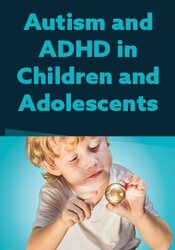

Discover powerful new tools to help neurodiverse children and adolescents thrive
Neurodiverse children and adolescents are navigating a world not built for them.
And between struggles with sensory overload, communication barriers, social stigma from their peers, and outdated models of neurodivergence that pathologize their behavior…
The way forward can seem impossible to find.
For you, your young client, and their caregivers.
But new developments in Neurodivergent Affirming Therapy offer powerful tools to help these vulnerable young clients.
In this focused training with Clinical Psychologist and neurodiversity specialist Anna Clarke, you’ll discover practical strategies to provide the comprehensive support these children and their caregivers need:
In this training, you’ll discover:
Common myths and misunderstandings about ADHD and Autism
Evidence-backed strategies for working with neurodivergent children and youth
Coaching strategies to support parents, caregivers, and the whole system around neurodivergent young clients
With the practical tools you’ll learn in this training, you’ll finally see these uniquely vulnerable clients flourish as the person that they are rather than struggle to be someone they're not.
PESI Australia, in collaboration with PESI in the USA, offers quality online continuing professional development events from the leaders in the field at a standard recognized by professional associations including psychology, social work, occupational therapy, alcohol and drug professionals, counselling and psychotherapy. On completion of the training, a Professional Development Certificate is issued after the individual has answered and submitted a quiz and course evaluation. This program is worth 19 hours CPD for points calculation by your association.
| File type | File name | Number of pages | |
|---|---|---|---|
| Link | Handout 1 | ||
| Link | Handout 2 | ||
| Link | Handout 3 | ||
| Link | Pocket Guide | ||
| Link | Autistic Burnout | ||
| Link | Client & Resources | ||
| Link | Neurodiversity Affirming Therapy Resources | ||
| Link | Neurodivergence & Trauma Diagram |

Anna Clarke is a Psychologist and APPTA registered Play Therapist with a passion for supporting children and young people. With a background in Out of Home Care, they are passionate about the transformative powers of play in building healthier relationships and supporting emotion regulation. Anna holds a Master in Child Play Therapy and collaborates with parents, carers, schools, and stakeholders to provide collaborative care. They are passionate about early intervention, approaching behaviours through a trauma-informed and Neurodiversity-Affirming lens.
Anna actively advocates for Neurodiversity-Affirming approaches to therapy. Anna is also experienced working with survivors of sexual assault and family violence. They are currently part of the Witness Intermediary Pilot Scheme within the Tasmanian Department of Justice, where they conduct communication assessments during police interviews and court proceedings.
Anna is an EMDRAA Accredited Consultant and has undertaken advanced training in EMDR Therapy. Anna is an active member of the Australian EMDR Therapy community, contributing through collaborative research, facilitating a Neurodiversity-Affirming EMDR Peer Group, and providing support for therapists wishing to integrate Neurodiversity-Affirming practise into EMDR Therapy.
As Co-Director of Divergent Futures, they offer education, training, and consulting in Neurodiversity-Affirming practice. Anna is an experienced public speaker, addressing topics such as violent behaviours, trauma-informed care, managing power imbalances in therapy, and strengths-based treatment for eating disorders.
Outside of their professional pursuits, Anna enjoys hiking in the Tasmanian bush, reading, boxing, and art.
Speaker Disclosures: Financial: Anna Clarke maintains a private practice and is the co-director of Divergent Futures. They have employment relationships with Deakin University and the Tasmanian Department of Justice. Anna Clarke receives a speaking honorarium from PESI, Inc. They have no relevant financial relationships with ineligible organizations. Non-financial: Anna Clarke has no relevant non-financial relationships.
Get a comprehensive introduction to Neurodiversity Affirming Therapy
Learn about common myths and misunderstandings about cognitions, behaviours and regulation responses
Explore the developmental neuropsychology and the unique features in Autism and ADHD
Learn to identify Autistic and ADHD behaviour, coping and functioning
Emphasize strengths-based frameworks for working with Autistic/ADHD clients
Discover research-backed interventions and specific step-by-step skills and methods for effectively supporting neurodivergent children and adolescents to best outcomes
Uncover unique ways in which Autistic/ADHD children communicate and engage
Interpret the social and emotional cues of Autisitic and ADHD children whilst supporting the development of communication and relational skills
Develop fluent and effective communication skills specific to the emotional and cognitive needs of Autistic/ADHD children and adolescents
Learn to distinguish, navigate, and alleviate issues related to sensory stimulation, processing, motor skills and overload
Address social stigma in neurodivergent individuals and provide psycho-education to them and to their care-givers
Identify and overcome obstacles that impede treatment effectiveness for neurodivergent clients.
Discover simple to apply interventions for:
improving executive functioning
exploring and developing emotional intelligence
tuning into social and self-awareness
valuing difference and growing self-esteem and confidence
Master coaching techniques to support parents and caregivers in fostering a supportive environment
Understand the underlying reasons for 'challenging behaviors’ and respond with an affirming, empathetic approach
Understand how neurodivergent children’s wellbeing is influenced by their broader social and familial systems, recognizing external influences like ableism and biases
Learn how play can be a powerful tool in engaging and supporting Autistic/ADHD children
Parent and Stakeholder Engagement Strategies:
Develop methods to increase active involvement from parents and other key figures in the child's care
Master strategies for effectively co-regulating with Autistic/ADHD children
Adapting Environments for Neurodiversity:
Learn how to make therapeutic, home, and school settings more accommodating for neurodiverse individuals
Learn to work collaboratively with other professionals and stakeholders in the care of neurodivergent young clients
Discover proven strategies to help children with Autism or ADHD develop resilience
Consider the impact of diet and medications
Learn how to build strong, positive, and affirming therapeutic relationships with neurodivergent clients and their families
Please wait ...